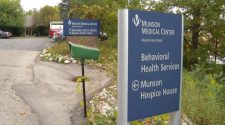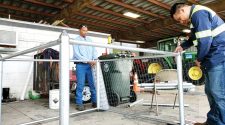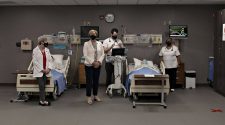Some time ago, I wrote that the three things retired people worry about most is wealth, health and relationships. Speaking personally, I believe that wealth, or running out of money occupies the top spot on older retired people’s minds and health is a close second. Part of the reason is that advances in health care and changes in attitude have made it possible for us to live and stay active longer than ever. The big issue with health is to stay fit and strong enough to enjoy being active and keep our immune systems running at peak efficiency.
Fitness for older folks
Staying fit, that’s the problem. Being retired means you can sleep and work as much as you want. And it gets easier to sit on the porch as we get older. At my last physical, my doctor told me it was never too late to get active and increase my strength and stamina. He’s probably right.
Consider this; It’s not how long you’ve been alive that make you old, it’s the lack of activity and a good positive attitude as you age. Research has shown time and again that our sedentary lifestyles are harmful to our health and that active people enjoy life and age better with fewer health problems.
Even though you know this is true, you might think it’s too late to get active or be convinced that you can’t do it, but that’s not true either. Talk to your doctor about any restrictions you might have, then get active. You can enjoy sports and adventure. And we’re not talking about taking a casual stroll, light walking or gardening. We’re talking about actually increasing your heart rate and pushing yourself a little.
Here are 5 Easy Ways to Get Active at Any Age
Swim
When it comes to health and fitness, it’s tough to beat the benefits of a swimming pool. Swimming is the best exercise when it comes to improving muscle strength and cardiovascular fitness. It’s easy on the joints, (which makes it an ideal choice for older people), helps increase flexibility, improves bone density and heart health. According to the CDC, swimming and other water-based workouts are safe and effective regardless of your age. I read one study that indicated that older adults who swam were 33 percent less likely to fall, a major cause of injury in older people 70. I’m not sure how they arrive at these statistics, but anything that increases strength and muscle tone has to help.
Lift Weights
If “weight lifting” or “going to the gym” conjures images of young body builders pumping iron, it’s time to rethink this form of exercise and look at the benefits that can be gained including confidence, better sleep and stronger muscles and bones. Articles on the CDC website suggest strength training can help relieve arthritis pain and lower an older persons chances of a fall. Weight lifting programs can be tailored to fit people of all ages and abilities. Strength training can be a safe and effective exercise for older adults but we have to be careful and not over extend ourselves when we start out. Check out some kettle bell exercises and use low weights to avoid sore muscles.
Hike
Or just plain old walking helps people connect with nature, keep moving and enjoy the benefits of being outdoors and interacting with other people. Older people are doing everything from charity walk/run events to tackling the Appalachian Trail. A well earned sense of independence is at the top the list of benefits for most hikers. Nature provides an escape from every day stress and encourages longer periods of activity than a walk around the neighborhood can. Other health benefits include better heart health, circulation, mobility and a reduced risk of hospitalization.
Join a Sports League
This one could be a little more difficult. But, if you don’t like exercising by yourself, the teamwork of organized sports might be just the ticket to better health. Adult sports leagues all across the country offer everything from basketball to softball. Whatever your sport of choice is, there’s a good chance you will find others playing in your area, so join up and reap the physical and mental benefits and make some new friends at the same time.
Yoga
If you are not into more active sports, yoga may provide the exercise benefits you’re looking for. While I haven’t practiced yoga myself, I do know several people who practice Hatha yoga. Taking the time to move through poses is certainly worthwhile in getting increased flexibility and stress relief. You can practice on your own with only a video as a guide or join a class. Yoga will help increase your muscle strength, improve flexibility and circulation and lower your stress level.
Staying healthy and fit are key to enjoying retirement. Many people retire and start living the good life. Staying up late, eating more and sitting on the couch more. Most of us stop getting enough exercise and it isn’t long before we are, over weight, out of shape and out of breath. And it is easier not to do anything about it.
















